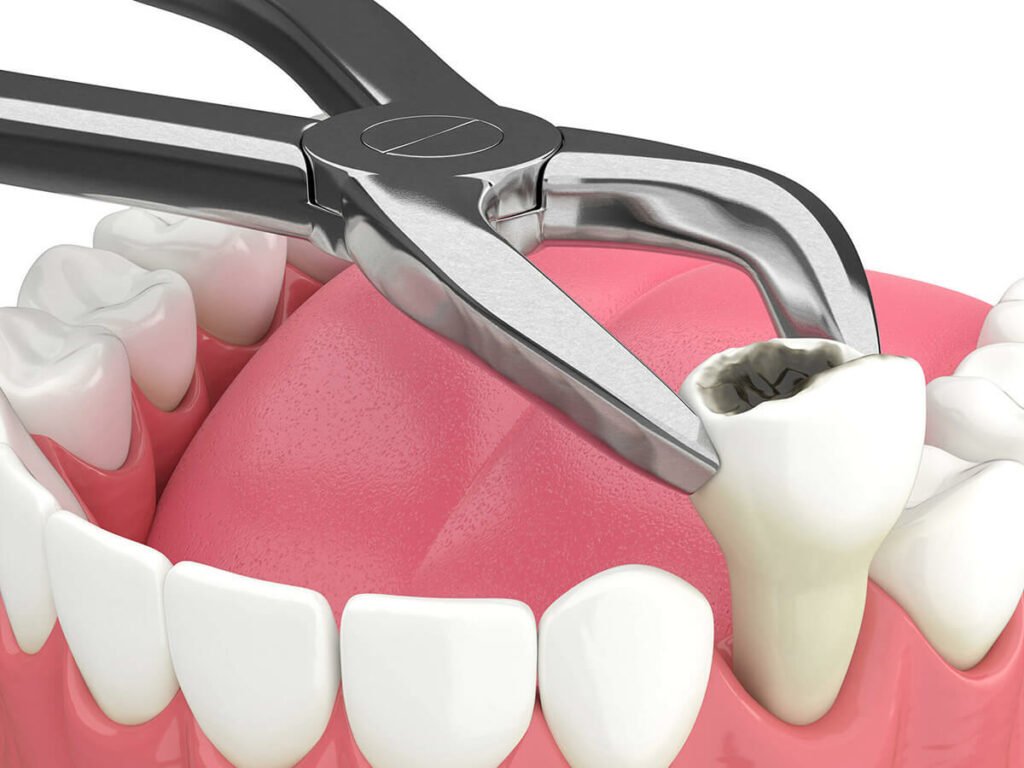Are you experiencing tooth pain or discomfort? Have you been told that a tooth extraction may be necessary? Don’t panic! While the thought of having a tooth pulled can be unnerving, it’s important to understand that this procedure is quite common and often beneficial in preserving your overall oral health. In this blog post, we will explore the world of tooth extractions and delve into five common reasons why they may be recommended by dental professionals.
So sit back, relax, and let’s uncover the mysteries behind tooth extraction together!
What is Tooth Extraction?
Tooth extraction is a dental procedure that involves the removal of a tooth from its socket in the jawbone. It is typically performed by a dentist or an oral surgeon, depending on the complexity of the case.
5 Common Reasons For Tooth Extraction
Tooth extraction is a fairly common dental procedure that involves removing a tooth from its socket in the jawbone. While dentists always strive to save natural teeth whenever possible, there are certain situations where tooth extraction becomes necessary. In this blog post, we will explore common reasons why a tooth might need to be extracted.
Severe Tooth Decay:
When tooth decay progresses beyond repair and affects the inner pulp of the tooth, extraction may be the only option left. If left untreated, severe decay can lead to excruciating pain and potentially serious infections.
Impacted Wisdom Teeth:
Many people experience problems with their wisdom teeth as they erupt or become impacted due to a lack of space in the mouth. Impacted wisdom teeth can cause pain, swelling, infection, and even damage to neighboring teeth.
Gum Disease:
Advanced gum disease can lead to the loosening of teeth due to bone loss around them. In cases where periodontal disease has caused irreversible damage and
compromised oral health, extracting affected teeth may be necessary.
Dental Trauma:
Accidents or injuries such as falls or sports-related incidents can cause significant damage to teeth. If a tooth is severely fractured or broken beyond repair, it may need to be extracted.
Orthodontic Treatment:
Sometimes orthodontic treatment requires the removal of one or more healthy permanent teeth to create enough space for proper alignment
of remaining teeth. Remember that every case is unique, and your dentist will carefully evaluate your situation
before recommending tooth extraction as an appropriate solution for your dental problem.
Conclusion
Understanding the common reasons for tooth extraction can help individuals make informed decisions about their oral health. Whether it’s due to severe decay, infection, overcrowding, or trauma, tooth extraction is sometimes necessary to maintain overall dental well-being.
If you’re experiencing any of the signs and symptoms mentioned in this article, it’s crucial to consult with a dentist as soon as possible. They will be able to evaluate your specific situation and recommend the appropriate treatment options.
Remember, prevention is always better than cure when it comes to dental health. Practicing good oral hygiene habits such as regular brushing and tossing, along with routine dental check-ups can go a long way in preventing conditions that may lead to tooth extraction. With advancements in dentistry today, there are also various alternatives available for replacing missing teeth, such as dental implants or bridges. These options can restore both functionality and aesthetics to your smile.
Maintaining healthy teeth should be a priority for everyone. By staying proactive in our oral care routines and seeking professional advice when needed, we can minimize the likelihood of needing tooth extractions and enjoy a lifetime of healthy smiles.

